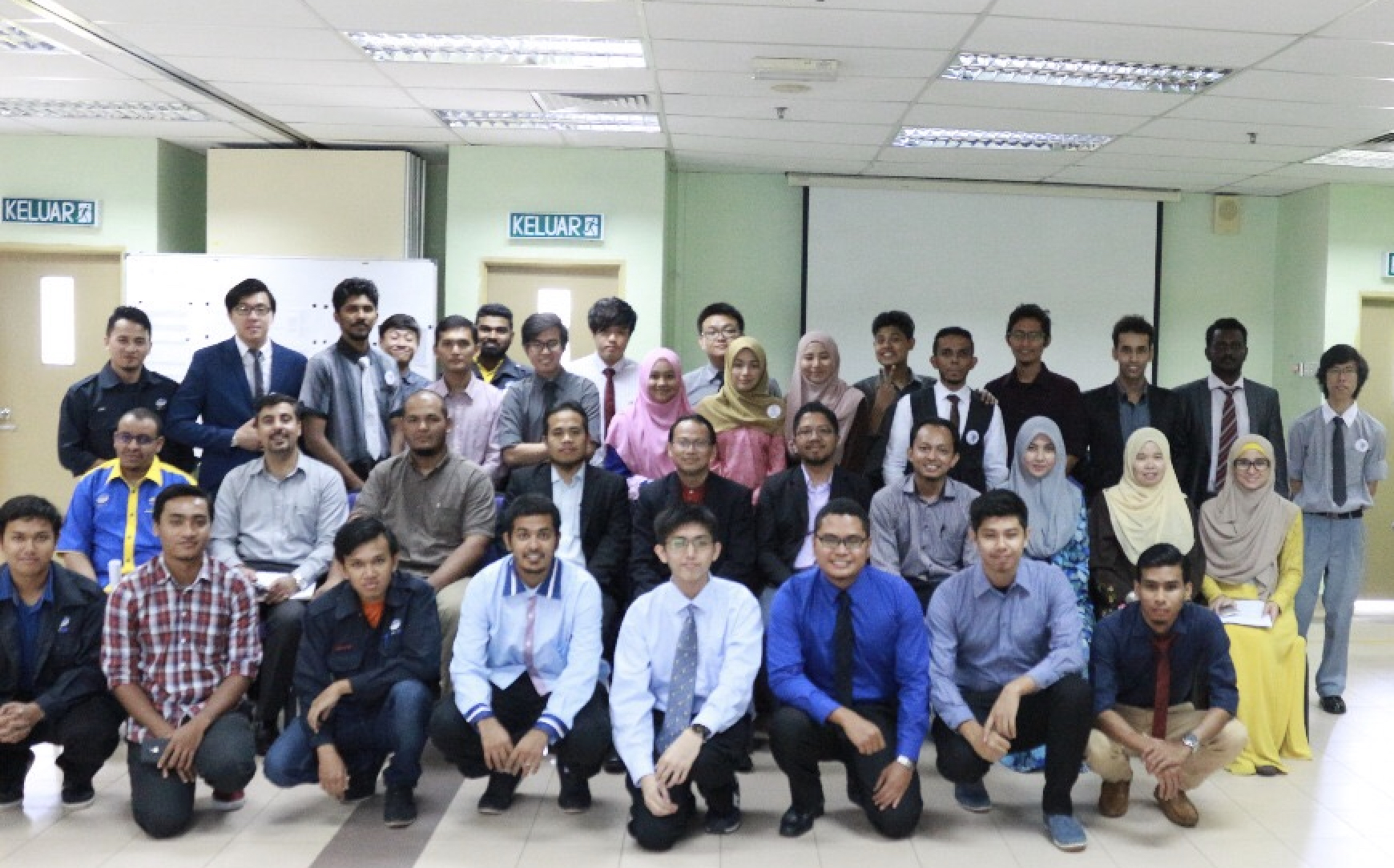
The Lecturers and Students of School of Computer and Communication Engineering, UniMAP
I am honored to be invited as one of the Keynote Speaker and also a judge for UniMAP’s Final Year’s Projects (Individual and Group) that are focused on Internet of Things on May 29, 2017, at School of Computer and Communication Engineering, Pauh Putra Campus in Perlis. The School shortlisted and displayed 26 IoT showcases.
The presentation slides can be seen and download from HERE.
Below are my short comments and review regarding the overall displays.
- The projects covered various application scenarios such as health, aquaculture, smart home, car security, hazardous environment, garbage, environmental, parking, transportation, security, LoRa, forest, smart mirror, etc.
- The students are very innovative and creative in developing the solutions. They have thought through various usage scenarios in detail.
- All the projects displayed are complete working prototypes. Even though there are some hiccups with the Internet/WiFi connectivity, the students have made an effort is showing their recorded videos. There is a group even show a detailed video how their car surveillance works with some “actors”.
- The mockups are displayed in such detail which amazed me how much effort and thoughts have been put into the project. These mockups really help the overall project presentation. Seeing a demo with mockup is far better than posters on the wall. Mockups such as parking lot, supermarket, wearable shirt, train, house, aquaponic, automated roof cooling system, smart bin, smart pillbox, smart mirror and much more.
- It’s surprising to see how interests in IoT manage to bring about the energy, effort, commitment, and self-learning to the students. Integrating sensors, microcontrollers, GSM modems, GPS, connecting to the cloud using IoT middleware, building backend web solution and mobile app development by a single student deserve a big applause.
- IoT is all about solving a business problem and the students with the help of their UniMAP lecturers understand this quite well. Defining the right problem statement is key to start developing IoT.
Below are some points that can further improve future projects:
- This year can be considered as Version 1.0 and thus new feature enhancement can be built for Version 2.0. It’s important to re-use or add new functionalities to the project rather than re-create new project topics. Let Version 1.0 project to continuously gathering the data. Keep the historical data.
- Customer Validation – meet the actual customers, conduct a survey and ask for feedback. The customer might different view how to use the product. Nowadays, product development is agile using the Lean Startup method. Create a Minimum Viable Product (MVP), show to the user, measure some parameters and learn from any mistakes – and quickly refine the product.
- Help the students to learn the basics of Raspberry Pi, Arduino, IoT middleware and Big Data in the early stages of the course rather than asking them to learn by themselves. Embed these topics in the some of the subjects or Lab experiments. By doing this, it will help the student to quickly build the prototype much faster.
Congratulations to the students whom I believed will be the upcoming Generation-IoT. You are now ready to face the IoT World!

Generation-IoT of UniMAP
[youtube https://www.youtube.com/watch?v=VOu9s7oGSLc&w=560&h=315]
About the Author
Dr. Mazlan Abbas is currently the Co-Founder and CEO of FAVORIOT Sdn Bhd. He is an IOT Evangelist and a Thought Leader. He received an award as 50 Most Impactful Smart Cities Leaders by World CSR 2017. He is ranked No. 20th Thought Leader in IOT by 2014 Onalytics Report – “The Internet of Things – Top 100 Thought Leaders”, ranked Top 10 in IoT Top 100 Influencers by Postscapes 2016/2017, ranked Top 100 in Smart Cities Top Experts by Agilience Authority Index May 2016. He is also a Global Vision Board Member. You can reach him on LinkedIn or Twitter. Check all his presentation slides HERE.
More Info about FAVORIOT – Click LIKE, SHARE, SUBSCRIBE and FOLLOW: